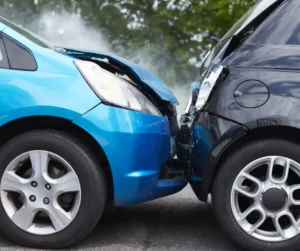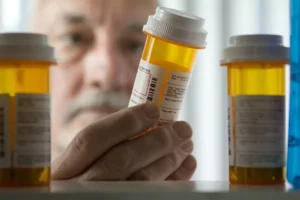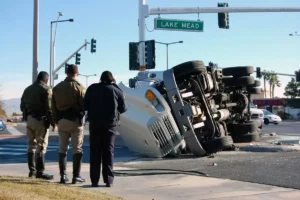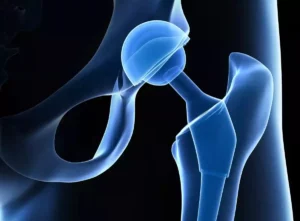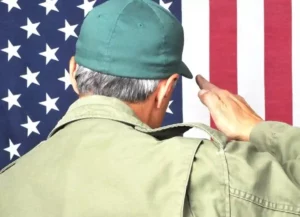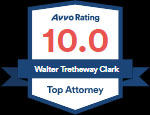The arrest of Tiger Woods for driving under the influence of prescription drugs earlier this week has drawn attention to the dangers of drugged driving.
For the first time, drugged drivers are more likely to be involved in fatal crashes than are drunk drivers. According to the Governors Highway Safety Association and the Foundation for Advancing Alcohol Responsibility, illegal and prescription drugs are present in the bodies of drivers killed in crashes about 43% of the time. Conversely, alcohol above the legal limit was found in 37% of drivers killed in crashes.
This trend is a sharp shift from just a decade ago. In 2005, alcohol was the culprit in 41% of traffic deaths, whereas drugs were only a factor in 28%.
The problem is growing so rapidly that states are providing hundreds of law enforcement officers with special training to identify drugged drivers. Many are also seeking new technologies for detecting drugs in drivers’ systems.
According to the National Institute of Health, 20% of drivers reported using a prescription drug in the past two days. These drugs were mostly sedatives, antidepressants and painkillers. However, the majority of drivers under the influence are using marijuana. The Governors Highway Safety Association reports that marijuana accounts for over one-third of drugs found in drivers.
Testing for Drugged Driving is Complex
Whereas the standard for determining drunk driving is 0.08% blood-alcohol content (BAC), there isn’t much of a standard when it comes to testing for prescription drugs. Testing for prescription drugs is also more difficult than having a driver blow into a Breathalyzer to determine their BAC. A urine or blood test is required to determine whether a driver is under the influence of drugs.
The effects of prescription drugs vary, depending on the drug and the person taking it. This adds another layer of complexity for law enforcement trying to determine whether a driver was impaired. While some drugs slow reaction time, others can have a more stimulating effect and encourage risk taking and judgment. A mix of prescriptions, or mixing prescriptions with alcohol or illegal drugs, can further complicate the effects.
Why is it Difficult to Convict Drugged Drivers?
Convicting drivers who are under the influence of prescription drugs can also be challenging. Prosecutors bear the burden of balancing protecting the public and protecting the rights of individuals to take their prescribed medications. It can also be difficult to determine whether a driver took the drugs right before driving, since some medications can linger in the body up to several weeks.
Changing Public Perception of Driving Under Influence of Prescription Drugs
Many drivers still fail to understand the dangers of driving under the influence of prescription drugs. Some wrongly assume that since they received a prescription from their doctor, it is safe for them to drive after taking it. But the reality is drugged drivers are causing more fatal accidents nowadays than are drunk drivers. Clearly it’s time for a perspective change concerning driving under the influence of drugs.
Avoid a Drugged Driving Crash
Like drunk driving crashes, these accidents are entirely preventable. As long as people who legally use prescription drugs do not get behind the wheel while under the influence, these deadly drugged driving crashes can be avoided. If you take prescription medications, always consult with your doctor or pharmacist about the safety of driving while taking the drug. Also be sure to thoroughly read the drug’s label to make sure there are no warnings against driving and operating heavy machinery.
It might also be helpful to understand the crash risk level associated with different types of drugs. According to a European study, marijuana carries a slightly increased risk of crashing. Benzodiazepines, cocaine and opioids carry a medium increased risk. Drivers using amphetamines or mixing multiple drugs have a highly increased risk. Those using alcohol together with drugs are at the highest risk for crashing.
“We can no longer ignore or underestimate the dangers of driving under the influence of prescription drugs. If you take prescription drugs, please be responsible and refrain from getting behind the wheel until it is safe to do so,” said Attorney Walter Clark, founder of Walter Clark Legal Group.
Our firm has been handling personal injury cases throughout the California Low Desert and High Desert communities for over 30 years. With a 95% success rate, the California personal injury attorneys at Walter Clark Legal Group will fight to hold those responsible for your loss accountable and win compensation to cover medical bills, lost wages, and pain and suffering. If you have been injured in an auto accident and want to discuss your legal options, contact us today for a free consultation with an experienced personal injury lawyer. We have offices in Indio, Rancho Mirage, Victorville, and Yucca Valley and represent clients through the entire California Low Desert and High Desert communities.
DISCLAIMER: The Walter Clark Legal Group blog is intended for general information purposes only and is not intended as legal or medical advice. References to laws are based on general legal practices and vary by location. Information reported comes from secondary news sources. We do handle these types of cases, but whether or not the individuals and/or loved ones involved in these accidents choose to be represented by a law firm is a personal choice we respect. Should you find any of the information incorrect, we welcome you to contact us with corrections.
- What To Do If You Have Been Injured At A Concert In California? Mar 27,2024
- Walter Clark Legal Group Reimburses Thanksgiving Ride Fares Nov 14,2023
- Walter Clark Legal Group Donates Backpacks to Booker T. Washington Elementary School Aug 22,2023
- Walter Clark Legal Group Donates Backpacks to Underserved Students Aug 22,2023
- Walter Clark Legal Group Reimburses Labor Day Ride Fares Aug 21,2023
- 2023 Safe Ride Home Program Jun 21,2023









